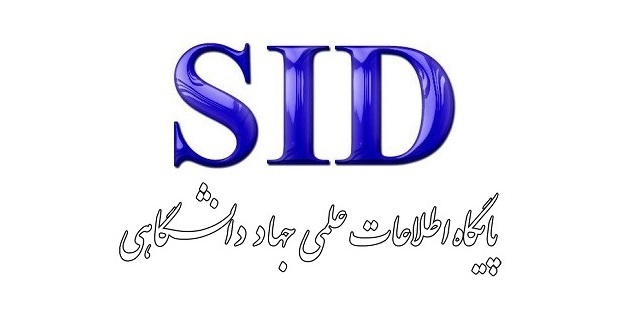Lived Experience of Electronic Sports: A Phenomenological Study of Motivations and Challenges
Keywords:
Information and Communication Technology (ICT), Electronic Sports (E-sports), Traditional Sports, Lived Experience, PhenomenologyAbstract
This study was conducted with the aim of exploring the lived experiences of electronic sports (e-sports) players in Iran and providing a phenomenological analysis of their motivations and challenges. The statistical population included active e-sports players in Iran who were selected purposefully using the theoretical sampling method. The inclusion criteria were active experience in this field, willingness to participate in the study, and the ability to articulate personal experiences. In total, 17 participants (4 women and 13 men) with an average age of 25 years and between 4 to 12 years of experience in e-sports were examined. Data were collected through in-depth semi-structured interviews. To ensure credibility and dependability, the trustworthiness criteria proposed by Guba and Lincoln (1985)—including prolonged engagement in the field, persistent observation, triangulation, peer debriefing, and member checking—were applied. Findings revealed that the lived experiences of players can be analyzed across three main dimensions: (1) Lived Experiences (self-concept and identity, emotional experiences, cognitive and skill development, and escapism and role-playing); (2) Motivations for Participation (game appeal and dynamics, social and global interactions, economic and professional opportunities, accessibility and usability, and emotional and motivational effects); and (3) Challenges Encountered (personal challenges, financial and economic barriers, technical and infrastructural problems, social and familial obstacles, and competitive and professional difficulties). The results indicate that electronic sports provide a multidimensional and complex experience for players, which, while offering numerous opportunities, also presents diverse challenges.
Downloads
References
Abbasi, S. (2018). An Investigation of the Criminalization of Administrative Crimes in Iranian Criminal Law. Quarterly Journal of Criminal Law Research, 4(2), 115-136.
Abdulrahimian, H., & et al. (2019). Analysis of Effective Factors on Administrative Health and Anti-Corruption. Quarterly Journal of Ethics in Management, 4(3), 113-132.
Alvani, M. (2019). Public Management and Administrative Health. Public Management Education and Research Center.
Ashouri, M. (2021). General Criminal Law (Vol. 2). SAMT.
Baqeri Komarolia, M. (2016). A Comparative Analysis of the Iranian Legal System with the Merida Convention (UNCAC) in the Field of Anti-Corruption. Majd Publications.
Baqerzadeh, H., Karimi, S., & Sharifi, M. (2024). Analysis of the Causes of Administrative Corruption Expansion and Strategies for Combating It in Iran. Quarterly Journal of Public Policy, 8(1), 73-98.
Camngca, V. P., Amoah, C., & Ayesu-Koranteng, E. (2024). Underutilisation of information communication and technology in the public sector construction project's implementation. Journal of Facilities Management, 22(1), 1-20. https://doi.org/10.1108/JFM-10-2021-0128
Cote, A. C., Wilson, A., Hansen, J., Harris, B. C., Rahman, M. W. U., Can, O., & Foxman, M. (2023). Taking Care of Toxicity: Challenges and Strategies for Inclusion in US Collegiate Esports Programs. Journal of Electronic Gaming and Esports, 1(1), 11-33. https://doi.org/10.1123/jege.2022-0031
Cunningham, G. B., Fairley, S., Ferkins, L., Kerwin, S., Lock, D., Shaw, S., & Wicker, P. (2018). eSport: Construct specifications and implications for sport management. Sport Management Review, 21(1), 1-6. https://doi.org/10.1016/j.smr.2017.11.002
Czakó, A., Király, O., Koncz, P., Yu, S. M., Mangat, H. S., Glynn, J. A., & Demetrovics, Z. (2023). Safer esports for players, spectators, and bettors: Issues, challenges, and policy recommendations. Journal of Behavioral Addictions, 12(1), 1-8. https://doi.org/10.1556/2006.2023.00012
Dadfar, S. (2021). Developments in Afghanistan's Penal Code with an Emphasis on Crimes Against Administrative Health. University of Herat.
Davoudi, A., Mousavi, N., & Moradi, J. (2020). The Relationship Between Administrative Health and Good Governance in Developing Systems. Quarterly Journal of Comparative Public Management, 12(2), 45-66.
Fakouri, A. (2022). The Necessity of Criminalizing Abuse of Administrative Influence. Journal of Criminal Law and Criminology, 17(4), 95-120.
Fayyaz, M. S., Abbasi, A. Z., Ahmad, R., Qummar, M. H., Tsiotsou, R. H., & Mahmood, S. (2025). Gamers' gratifications and continuous intention to play eSports: the mediating role of gamers' satisfaction-a PLS-SEM and NCA study. International Journal of Sports Marketing and Sponsorship, 2, 1-45. https://doi.org/10.1108/IJSMS-03-2024-0068
Goldoust Jouybari, M., Nouri, S., & Habibi, K. (2022). Analysis of Afghanistan's Criminal Policy in Combating Corruption. Quarterly Journal of Comparative Law and Criminal Policy, 3(2), 81-104.
Hajizadeh, A. (2024). Legislative Challenges of Anti-Corruption in the Iranian Legal System. Administrative Law Research Journal, 6(3), 89-110.
Heidari, S. (2020). The Criminalization of Administrative Corruption in the Law of Afghanistan. Journal of Comparative Law of the Middle East, 5(1), 55-72.
Hosseini, N. (2019). Administrative Corruption in Afghanistan and the Legal Challenges of Combating It. Kabul University Legal Studies Center.
Kashcha, M., Yatsenko, V., & Gyömörei, T. (2022). Country performance in e-sport: Social and economic development determinants. Journal of International Studies, 15(4), 1-15. https://doi.org/10.14254/2071-8330.2022/15-4/14
Marjani, M., & Mirabbasi, N. (2020). A Comparative Study of Iran's Criminal System with the Merida Convention (UNCAC). Quarterly Journal of Contemporary International Law, 6(1), 11-38.
Miah, A. (2017). Sport 2.0: Transforming sports for a digital world. MIT Press. https://doi.org/10.7551/mitpress/7441.001.0001
Motahar, R. (2023). The Role of Administrative Transparency in Preventing Corruption. Management and Planning Research Institute.
Nabi Sharifi, A. (2019). Accountability and Administrative Health in the Islamic Governance System. Mofid University.
Ne'mati, M., & et al. (2022). An Ethical Analysis of Administrative Corruption Based on Islamic Principles. Professional Ethics Research, 5(2), 83-101.
Okamoto, S. (2021). Is eSports not a sport? If so, what does that mean? Prax., 22, 1-9.
Park, S. H., & Mahony, D. F. (2024). Challenges of e-sports based on big data and qualitative analyses: How should e-sports develop in the future? South African Journal for Research in Sport, Physical Education and Recreation, 46(1), 1-21. https://doi.org/10.36386/sajrsper.v46i1.309
Parry, J. (2019). E-sports are not sports. Sport, Ethics and Philosophy, 13(1), 3-18. https://doi.org/10.1080/17511321.2018.1489419
Qi, Y., Sajadi, S. M., Baghaei, S., Rezaei, R., & Li, W. (2024). Digital technologies in sports: Opportunities, challenges, and strategies for safeguarding athlete wellbeing and competitive integrity in the digital era. Technology in Society, 102496. https://doi.org/10.1016/j.techsoc.2024.102496
Rajabi, S., Naderi, F., & Sadat, M. (2021). Jurisprudential Foundations for the Criminalization of Administrative Corruption in Islamic Jurisprudence. Journal of Islamic Jurisprudence and Law Studies, 3(2), 23-48.
Rogstad, E. T. (2023). Virtual (ly) women athletes: A study of gendered power relations and inequality in sports-themed esports Nord University, Faculty of Social Sciences].
Rosell Llorens, M. (2017). eSport gaming: the rise of a new sports practice. Sport, Ethics and Philosophy, 11(4), 464-476. https://doi.org/10.1080/17511321.2017.1318947
Sakamoto, T. (2022). Phenomenological Critique of the Esports Experience: Focusing on Similarities with Drone Weapons. International Journal of Sport and Health Science, 20, 110-116. https://doi.org/10.5432/ijshs.202141
Seifi, M. (2020). An Investigation of Enforcement Guarantees for Administrative Crimes in Iranian Law. Criminal Policy Research Journal, 10(1), 61-84.
Van Manen, M. (2016). Researching lived experience: Human science for an action sensitive pedagogy. Routledge.
Vatankhah, M., & Nazari Monazzam, S. (2016). Evaluating the Conformity of Iranian Laws with the Merida Convention (UNCAC). Journal of Comparative Criminal Law Studies, 9(2), 67-88.
Widjaja, W., Samudra, A., Rachman, A., & Alvita, M. (2024). Improving E-Sport Player Loyalty: An Overview of the Game Industry in JABOTABEK, Indonesia. Journal Nusantara Aplikasi Manajemen Bisnis, 9(2), 471-488. https://doi.org/10.29407/nusamba.v9i2.21176
Downloads
Published
Submitted
Revised
Accepted
Issue
Section
License
Copyright (c) 2025 Maryam Ahmadi (Author); Nima Majedi ; Akram Sadat Hosseini Semnani (Author)

This work is licensed under a Creative Commons Attribution-NonCommercial 4.0 International License.







